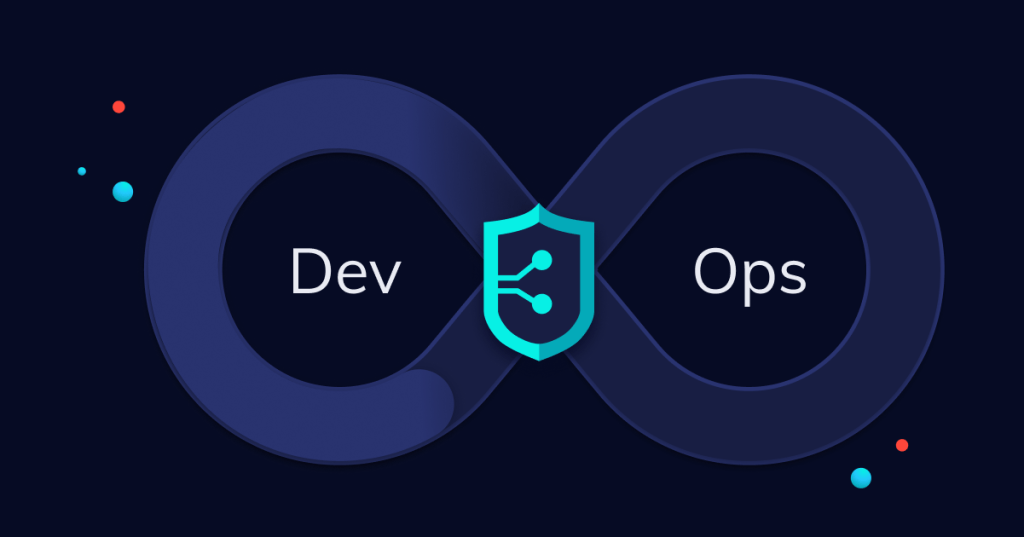Exploring DevOps: How to Leverage Security in Containerization

In the realm of DevOps, where agility and efficiency are paramount, containerization has emerged as a crucial technology. Containerization not only accelerates application development and deployment but also promotes consistency across various environments. However, the integration of containerization into the DevOps pipeline raises concerns about security. In this article, we will explore the interplay between containerization and DevOps, addressing security challenges and providing best practices to ensure the robust security of your containerized applications and data within the DevOps framework.
Containerization and DevOps Synergy
The Role of Containerization in DevOps
Containerization aligns perfectly with the DevOps philosophy by enabling teams to package applications and their dependencies into lightweight, self-contained units—containers. These containers can be easily moved across different stages of the DevOps pipeline, from development to testing and production, ensuring consistent, reproducible builds. Docker, Kubernetes, and other container orchestration tools have become invaluable in modern DevOps practices.
Containerization has become an essential part of modern IT infrastructure, enabling organizations to efficiently deploy and manage applications. While containerization offers numerous benefits, including portability, scalability, and resource optimization, it also raises concerns about security.
Understanding Containerization and its Security Concerns
What is Containerization?
Containerization is a technology that allows you to package an application and its dependencies into a single, lightweight container. These containers can run consistently across different environments, from development to production, making them highly portable and efficient. Docker, Kubernetes, and other container orchestration platforms have popularized containerization.
Why Security is a Concern
Security remains a primary concern when working with containerization, and misconceptions about its security are common. Organizations fear that containers may not be secure enough to meet their standards. However, the Department of Defense and other large enterprises have successfully implemented containerization in public cloud spaces, demonstrating that it can be made highly secure.
Addressing Misconceptions
Misconception 1: Assuming Containers are Inherently Safe
One common misconception is that containers are inherently safe due to their isolation capabilities. However, securing containers is a multi-layered approach, and not ensuring security at every layer can expose vulnerabilities. Organizations must take proactive steps to secure their containers, such as updating base images, adding security features, and removing unnecessary components.
Misconception 2: Neglecting Code Libraries
Another prevalent misconception is the assumption that code libraries are safe to use without proper vetting. Adding third-party code libraries without scrutiny can leave your applications vulnerable. To mitigate this risk, organizations should assess the security of code libraries, utilize tools like GitHub Advanced Security and Dependabot, and ensure that third-party components are secure.
Best Practices for Containerization Security
Secure Communication Between Containers and External Services
Ensuring secure communication between containers and external services is crucial. Implement the following best practices:
– Implement Transport Layer Security (TLS) to encrypt data in transit.
– Employ mutual TLS authentication for both parties to exchange digital certificates.
– Use HTTPS for web services to ensure secure connections.
– Monitor and log access to detect any suspicious activity.
– Utilize API gateways for controlling access and traffic.
– Implement network-level security measures to filter out potentially malicious traffic.
Preventing Data Leakage
Preventing data leakage is essential for maintaining the security of sensitive information within containers. To achieve this, consider the following practices:
– Educate employees on best security practices and provide training.
– Implement a zero-trust security model, assuming breach and limiting access.
– Regularly scan and assess for vulnerabilities and conduct penetration tests.
– Harden containers by limiting software and keeping up with patch updates.
– Isolate containers from each other to shrink the attack surface.
– Employ encryption for data at rest and in transit.
Ensuring Compliance with Data Sovereignty and Regulations
For organizations dealing with sensitive data, it is crucial to ensure compliance with data sovereignty and relevant regulations, such as HIPAA (Health Insurance Portability and Accountability Act). Implement the following best practices:
– Clearly define data access requirements and access roles within your organization.
– Use encryption to protect sensitive data.
– Limit data access to only authorized personnel.
– Regularly audit and monitor data access to identify and mitigate potential breaches.
– Maintain strong access controls, multi-factor authentication, and strong encryption keys.
Containerization offers substantial advantages in application deployment and management, but security concerns should not be underestimated. By addressing misconceptions, educating employees, and implementing best practices, organizations can leverage the full potential of containerization while ensuring the security of their applications and data. Containerization security is an ongoing process that demands continuous attention and effort, but the benefits of enhanced security and operational efficiency are well worth it.
With 17 years of industry experience, ActiveLobby proudly stands as a premier DevOps and DevSecOps provider, seamlessly blending cloud-native development expertise with comprehensive security practices. Our expertise empowers organizations to navigate the intricacies of containerization, optimizing DevOps pipelines for exceptional software delivery.
In an era that demands seamless integration between containerization and DevOps, ActiveLobby emerges as a trusted ally, guiding clients through the ever-evolving landscape of modern software development. Our unwavering commitment to data security ensures that your sensitive information remains safeguarded throughout the entire process.
Whether you seek to enhance your existing DevOps practices or embark on a containerization journey, ActiveLobby is the partner you can rely on to deliver exceptional results. Let us empower you to achieve your software development goals with confidence and efficiency.

